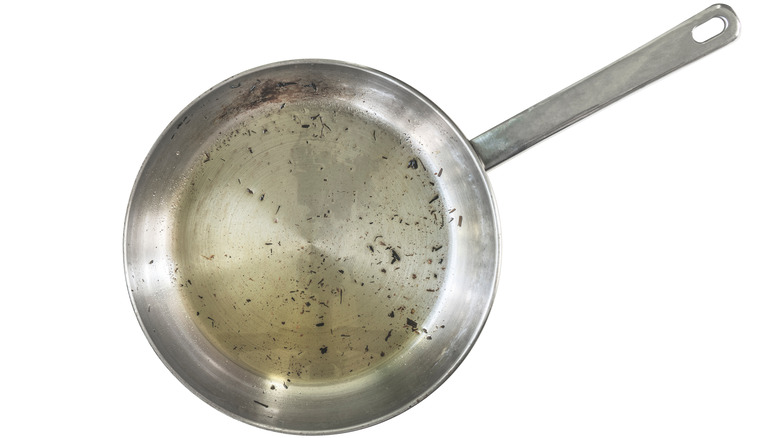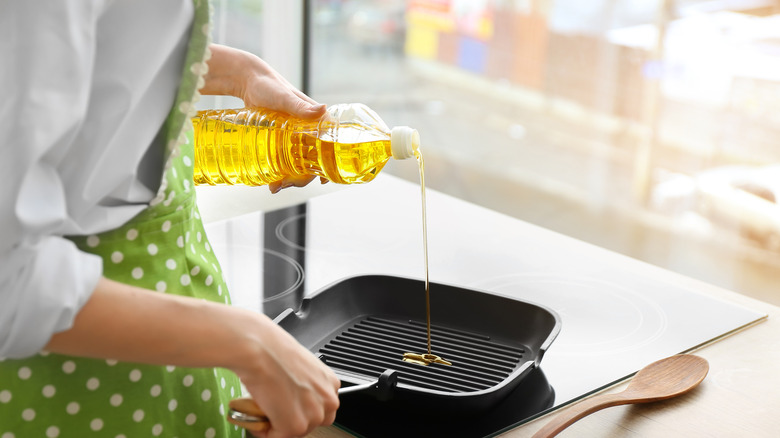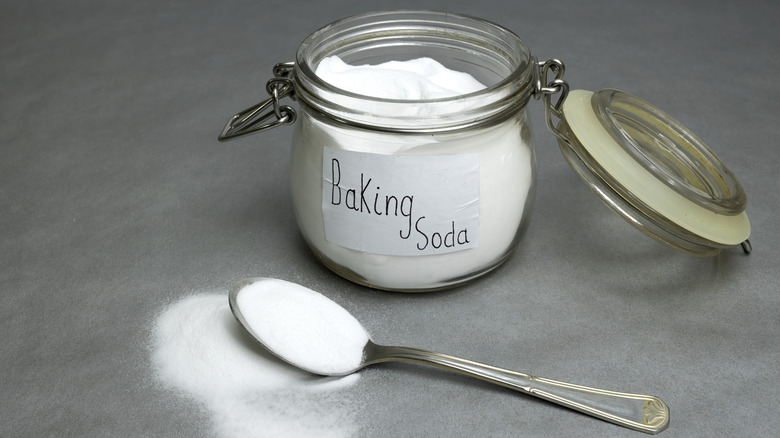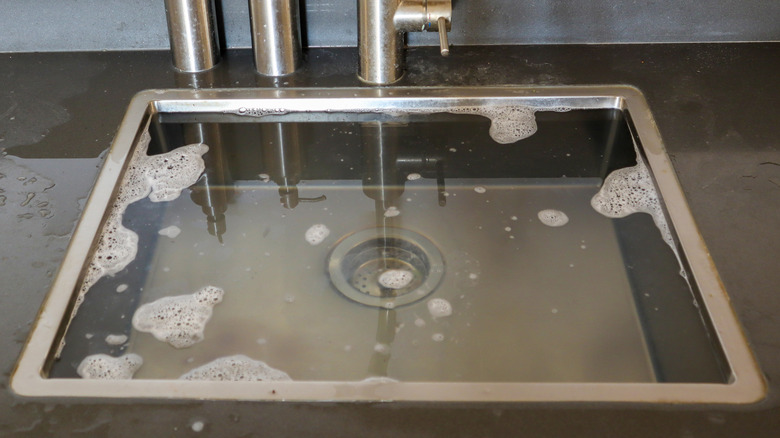The Quickest Way To Dispose Of Used Cooking Oil
Whether frying up some chicken or whipping up a batch of fritto misto, you're bound to see a thick layer of used cooking oil in your skillet. And it's often tempting to pour the hot oil down your sink so it can flow freely through pipes like water, as SeQuential notes. Except, hot oil isn't like water at all.
SeQuential explains that it is illegal to pour hot oil down the drain and creates waxy "fatbergs." These are formed when hot oil reacts with all the wonderful stuff in sewers, like waste and cleaning product chemicals. As fatbergs are established, things can go really downhill — or down-drain — quickly.
Fatbergs can cause serious problems
Once fatbergs are made, they grow in size from debris that sticks to them, which may clog pipes and cause bursts. And if that's not enough, continuously pouring oil down the drain can also cause damage to city sewer mains, drainage fields, and distribution lines, per The Spruce Eats.
So what's a home cook supposed to do then?
Instagram user Washy Wash offers some helpful advice for disposing of used cooking oil. First, they sprinkle some baking soda into a skillet and use a wooden spatula to mix the used cooking oil and baking soda. This results in a light-brown colored paste, which the Instagrammer then scrapes into a sheet of baking paper, wraps the whole thing up, and throws it away in a trash bin.
Look for this pantry staple
HowStuffWorks explains that baking soda – which is most likely sitting in your pantry as we speak — easily cuts through grease and oil due to its alkaline properties. No need to worry about damaging pots or pans with its use, as baking soda is so mild that it will only affect the oil itself.
So, you can throw away used cooking oil, but not when it's in a piping hot liquid form. Sprinkle some baking soda over the oil until paste forms. Then you can safely throw it out without damaging your sewers or the environment.
Too late, you poured it down the drain
If you're seeing this because you made the mistake of pouring cooking oil down the drain and are looking for ways to avoid the messy situation in the future, you may be in luck, as it's possible to fix your problem without facing a hefty plumber bill. According to the experts at O'Connor Plumbing, before calling in reinforcements you can try pouring boiling water and a little dish soap down the drain. The dish soap helps cut through grease, while the hot water will cause it to desolidify, breaking up the fat, oil, and other debris clinging to the sides of your pipe.
Unfortunately, this doesn't work on really bad clogs and may be simply passing the problem along. Once down your drain, the fat will cool and resolidify, potentially causing problems with your sewer system.
Are fatbergs really something you should be concerned about?
Though this might all feel a tad overdramatic, fatbergs are a serious issue worldwide, according to Newsweek. Wet wipes are a major contributor to this problem, as even those marketed as flushable are likely not so. In the sewer, the wet wipes attract all that oil and grease you so casually poured down your kitchen drain — and perhaps a mini fatberg of your own, if you were able to rid yourself of the clog without calling a plumber. In 2019, Newsweek reported these balls of grease and debris cost New York City $4.65 million to remove.
But this wet wipe revelation doesn't let home cooks or restaurants off the hook. The outlet shares 90% of a particularly notable fatberg found in London in 2018 was made of cooking fat. So while in the moment it may feel like pouring used cooking oil down the drain is the easiest clean-up solution, you're likely to pay for it in the future one way or another.




